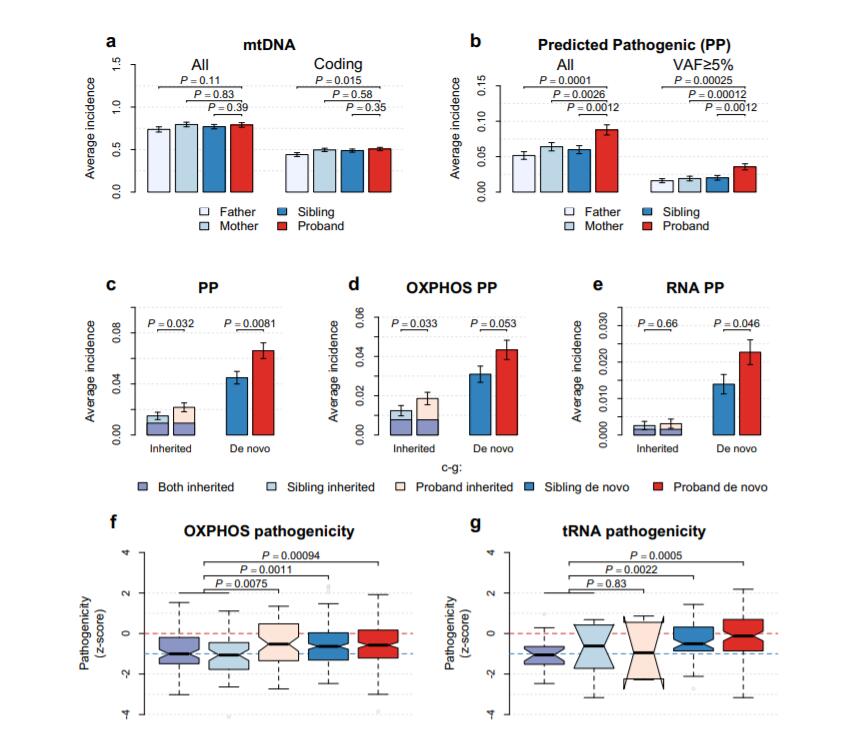On July 1st, 2022, Professor Gu Zhenglong's team from Cornell University [Professor Gu currently is working at Fudan University and the Greater Bay Area Institute of Precision Medicine (Guangzhou)] and Professor Wang Xiaobin's team from Hopkins University published an article on Nature Communications titled "Association of Mitochondrial DNA Content, Heteroplasmies and Inter-generational Transmission with Autism: Research paper by Findings from two independent U.S. samples" on line.
Abstract
Mitochondria are essential for brain development. While previous studies linked dysfunctional mitochondria with autism spectrum disorder (ASD), the role of the mitochondrial genome (mtDNA) in ASD risk is largely unexplored. This study investigates the association of mtDNA heteroplasmies (co-existence of mutated and unmutated mtDNA) and content with ASD, as well as its inter-generational transmission and sex differences among two independent samples: a family-based study (n = 1,938 families with parents, probands and sibling controls) and a prospective birth cohort (n = 997 mother-child pairs). In both samples, predicted pathogenic (PP) heteroplasmies in children are associated with ASD risk (Meta-OR = 1.56, P = 0.00068). Inter-generational transmission of mtDNA reveals attenuated effects of purifying selection on maternal heteroplasmies in children with ASD relative to controls, particularly among males. Among children with ASD and PP heteroplasmies, increased mtDNA content shows benefits for cognition, communication, and behaviors (P ≤ 0.02). These results underscore the value of exploring maternal and newborn mtDNA in ASD.

please click here to know more about this article.









